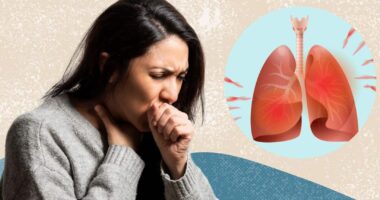Atopic dermatitis, often misunderstood as “just eczema,” is a chronic skin condition that plagues millions worldwide. Itching, inflammation, and dry, cracked skin become unwelcome companions, leaving sufferers searching for relief. Claims have it that lavender oil is good for Atopic dermatitis. Now, here is what Sound Health and Lasting Wealth gathered.
Atopic dermatitis: Is Lavender essential oil effective to calm Itchy skin?
According to one study, lavender essential oil has been shown to have potential benefits for atopic dermatitis. the study demonstrated that lavender essential oil, particularly linalyl acetate, can effectively suppress atopic dermatitis and calm itchy skin. It has been found to help cleanse the skin, lessen redness and irritation, reduce inflammation, and improve wound healing.
Lavender’s Properties:
Anti-inflammatory: Lavender oil boasts calming properties that may help quell the inflammatory firestorm within atopic skin. Studies [1, 2] suggest it can reduce redness and swelling, offering a much-needed truce to the itch.
Antimicrobial: Atopic skin is more susceptible to infections, and lavender oil’s antimicrobial prowess comes to the rescue. It can help combat bacteria and fungi that exacerbate the condition, creating a cleaner canvas for healing.
Soothing Scent: The delicate aroma of lavender isn’t just pleasing; it possesses calming properties that can ease anxiety and stress, often triggers for atopic flare-ups. Inhaling the gentle fragrance or applying diluted oil topically can create a sense of tranquility, aiding the body’s natural healing mechanisms.
Side effects of using lavender essential oil for atopic dermatitis
Note: While lavender offers enticing possibilities, it’s not a magical cure-all, you need to be aware of its potential side effects Essential oils, concentrated plant extracts, can be potent. Improper dilution or overuse can irritate sensitive atopic skin, worsening the itch.
Allergic Reactions: Some people might be allergic to lavender, leading to rashes, hives, or even difficulty breathing.
Hormonal Disruption: Lavender oil may mimic estrogen in the body, potentially impacting hormone-sensitive individuals, pregnant women, and those with certain medical conditions.
Photosensitivity: Applying lavender oil topically before sun exposure can increase the risk of sunburn.
Always dilute lavender oil in a carrier oil, like jojoba or almond, before applying it topically. A safe dilution ratio is 2-3 drops of lavender oil to 1 tablespoon of carrier oil.
Even diluted lavender may not be tolerated by everyone. Conduct a patch test on a small, inconspicuous area of skin 24 hours before applying it more widely.
And this is not a replacement for medical care. While lavender oil can be a helpful tool, it shouldn’t replace prescribed medications or doctor-recommended treatments. Consult your dermatologist for a personalized treatment plan.
Other helpful oils studied with promising results for eczema are; jojoba oil, borage seed oil, virgin coconut oil, and sunflower seed oil.
ALSO READ: Sesame Oil Shows Promise for Preventing Postmenopausal Osteoporosis
The information in this article is backed by research findings from hyperlinked sources and the image used is from depositphotos.com










